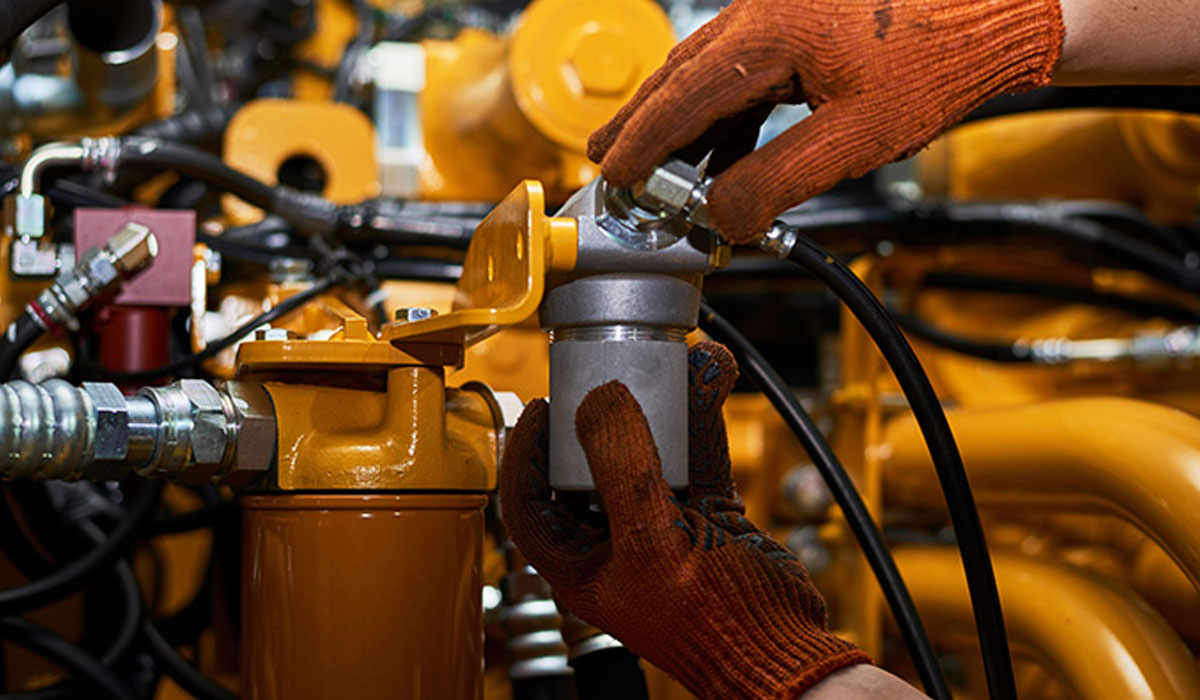Hydraulic systems are the unsung heroes of many trucks, powering the very equipment that keeps your business moving. But here’s the catch—if your hydraulic pump fails, so does your truck’s ability to function efficiently. That means downtime, repairs, and more hassle than you want to deal with. So, how can you avoid this? Regular maintenance.
Why Hydraulic Pump Maintenance Matters

You might wonder, why should I bother with hydraulic pump maintenance? Well, think of it this way: Your truck is a workhorse, but the hydraulic system is the engine behind the engine. Without it, nothing gets done. Over time, hydraulic pumps are subject to wear and tear from continuous use.
Here’s the key issue: without regular checks, small problems can escalate into big ones. You could be looking at expensive repairs or even a full pump replacement. A little bit of effort now could save you loads of money and downtime later.
Signs Your Hydraulic Pump Needs Attention
Hydraulic pumps don’t just suddenly stop working—they give you plenty of warning signs. But if you don’t know what to look for, it’s easy to miss the clues.
- Unusual noises – If your pump starts making grinding or squealing noises, it’s not just complaining. This could mean there’s debris in the system or that parts are wearing down.
- Erratic operation – Is your equipment jerking or stalling when it shouldn’t? This could indicate that your pump isn’t delivering consistent pressure.
- Slow response times – If the pump is sluggish or slow to react, it could be a sign of low hydraulic fluid levels or internal wear.
- Overheating – Hydraulic systems rely on fluid to stay cool. If your pump is getting too hot, you might have a flow restriction, or the fluid could be too low or contaminated.
- Fluid leaks – Any signs of fluid pooling where it shouldn’t be is a red flag. Leaks can cause system pressure loss and eventually lead to pump failure.
Essential Maintenance Tips to Keep Your Pump Healthy
Regular maintenance isn’t complicated, but it requires consistency. Follow these steps, and your hydraulic pump will keep running smoothly for years to come:
1. Check the Hydraulic Fluid
The hydraulic fluid is the lifeblood of the system. Make sure to check fluid levels regularly and top up as needed. Keep an eye on the fluid’s colour and consistency, too—if it looks milky or cloudy, that could indicate contamination, and you’ll need to flush the system. Stick to the manufacturer’s recommendations for fluid type to avoid compatibility issues.
2. Inspect Hoses and Seals
Hoses and seals wear out over time, so inspect them regularly for cracks, leaks, or any signs of damage. Even small leaks can reduce your system’s pressure and cause the pump to work harder than it should. Replace any worn-out hoses or seals as soon as you spot an issue. It’s a simple fix that can prevent bigger problems.
3. Monitor the Temperature
Hydraulic pumps operate under intense conditions, and overheating is one of the common causes of failure. Install a temperature gauge if you don’t already have one, and monitor it during operation. If the system is consistently running hotter than it should, it’s time to investigate. This could mean fluid issues, blockages, or a need for a system flush.
4. Keep the System Clean
Dirt and debris are the enemies of hydraulic systems. Always keep the environment around your pump clean, especially the tank and filters. Regularly check and change the filters to ensure no debris or contaminants are circulating in the system. A clogged filter can restrict fluid flow and cause the pump to overheat or fail.
5. Regularly Test the System Pressure
Testing the hydraulic system pressure is a key part of ensuring everything is operating as it should. Use a pressure gauge to check if the system is within the correct range. If the pressure is off, there may be internal wear or a need for calibration. Make this a part of your regular maintenance routine to catch issues early.
How Often Should You Perform Maintenance?
The frequency of your maintenance checks will depend on how heavily your truck’s hydraulic system is used. For example, if your truck is operating daily under intense conditions, you’ll want to perform checks weekly or even more frequently. On the other hand, for lighter use, monthly checks might be enough.
Keep an eye on the manufacturer’s guidelines as well, as they often provide a detailed maintenance schedule. However, don’t wait for things to go wrong—staying ahead of potential issues is always the smarter choice.
The Benefits of Proper Hydraulic Pump Maintenance
When you maintain your hydraulic pump properly, you’ll notice a few key benefits right away:
- Extended lifespan – Pumps that are well-maintained will last significantly longer, saving you from premature replacements.
- Reduced downtime – Fewer breakdowns mean your truck spends more time on the job and less time in the shop.
- Better performance – A well-maintained hydraulic system will operate more efficiently, reducing strain on your truck and other components.
- Lower costs – Catching small issues early means less expensive repairs and fewer major failures.
Final Thoughts: Don’t Wait Until It’s Too Late
Maintaining your hydraulic pump isn’t just about extending its life—it’s about keeping your truck running at its best. Without proper care, even small problems can snowball into costly repairs and long downtime. So, be proactive. Get into the habit of checking your hydraulic system regularly, and you’ll save yourself a lot of headaches down the road.










